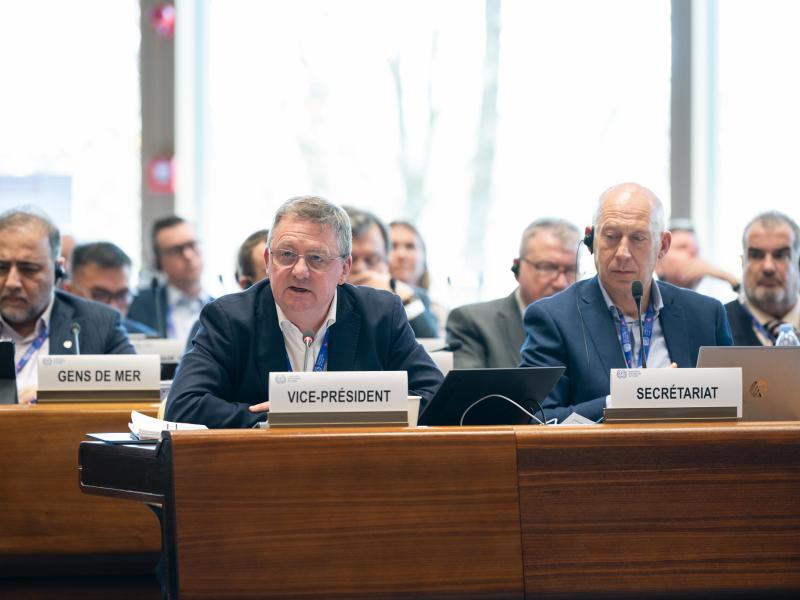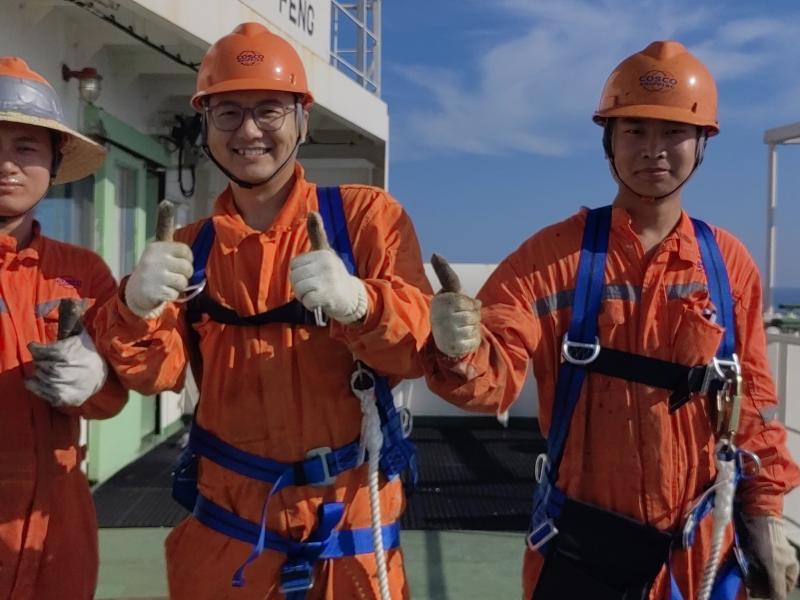As the world emerges from the COVID-19 pandemic, it is clearer than ever the disproportionate impact that the virus and associated lockdowns had on women workers.
But today - on International Women’s Day 2023 - the ITF is unambiguous in our commitment to not just going back to how things were pre-pandemic, but to build a fairer, more just world. We will build that better world for all workers, but it cannot be done without women workers at its heart.
Women are the drivers, conductors, ticket sellers, cabin crew and pilots providing critical services, as the global community recovers from the pandemic. But they are also the less visible workers keeping transport systems running, through vital work such as maintenance, security, cleaning, and administration services.
Women are also critical in the heavily male-dominated maritime industries of seafaring, fishing and dock work. The ITF is committed to properly integrating women into these industries, along with the rights, respect and dignity to which they and all workers are deserving of, regardless of sex or gender.
A lot of progress has been made, but there is still a long way to go. This is why the ITF has identified nine key demands of employers, governments and investors, to ensure a new, gender equal, normal. These demands are:
- Women on all decision-making bodies
- Income and social protection
- Access to sanitation and appropriate PPE
- Secure work
- Care before profit
- End violence and harassment against women
- New technology to benefit women workers
- Gender impact assessments
- Gender-responsive economic stimulus
You can read more detail about these nine demands here: https://www.itfglobal.org/sites/default/files/node/resources/files/COVID19%20Womens%20statement.pdf
The work needed to make our workplaces safe, fair and accessible for women is already taking place in many countries and industries.
Transport unions have a strong record of standing up against bullying and sexual harassment of women workers. That legacy has continued with recent high-profile cases in the shipping and the fisheries sectors, where women workers and their rights had strong support from unions.
We are proud of ITF affiliates leading the way with this work, but we must not be complacent. The worksite - be it a bus, wharf or aeroplane cabin - is still a dangerous place for too many women.
Stephen Cotton, ITF General Secretary, said:
“International Women’s Day is a vital day for our movement, but crucially it is a reminder that the fight for women’s rights in the workplace and society is a year-round struggle - not a one-day event.
The ITF is absolutely committed to eradicating the scourge of sexism and gender-based violence; from employers and governments of course, but also from within our own movement. We have a lot, rightly, to be proud of, but we also know we have further to go - and today is a day for recommitting to going all the way.”
Diana Holland, ITF Women Transport Workers’ Committee Chair, said:
“Day in, day out, women transport workers risk their lives to get to and from work, face violence and harassment on the job, and bring home less money than their male counterparts at the end of the day. Women transport workers are too often undervalued and underrepresented even within our own movement. There can simply be no movement for workers’ rights and justice that does not have the voices and interests of these women workers at its very heart.
But that struggle for the rights and conditions of women transport workers cannot just be left to women themselves. This challenge requires every affiliate and every member - especially the men - to step up and champion it. The prize, for us all, isn’t just safer and more equitable working lives, but a stronger movement as well.”



